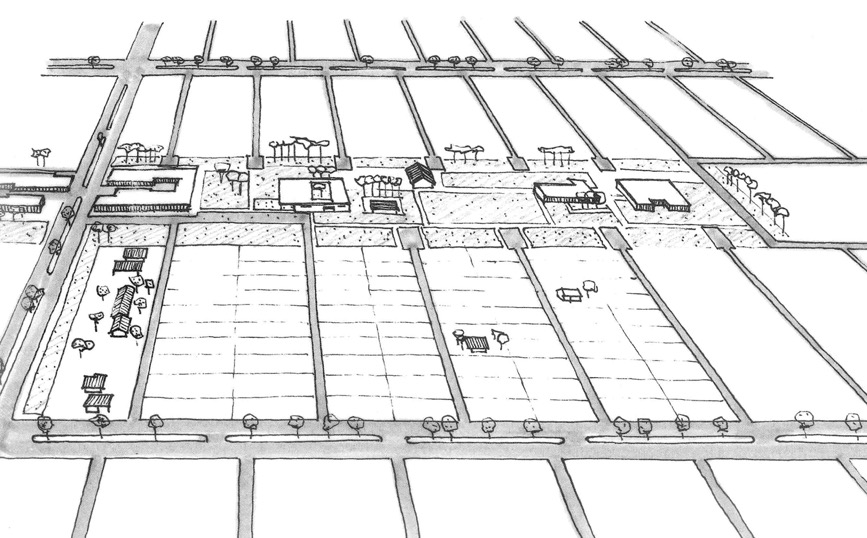The Americanization of Brazilian Cities: New Urban Forms and The Neighbourhood Unit Idea
Renato Leão Rego

Image: Angélica, 1954. Source: Wilheim, 2003.
Abstract
This article explores the repercussion of the Americanization of Brazilian society as observed in mid-20th century town planning. More specifically, it focuses on the plans for new towns that emerged in the pioneering agricultural hinterlands of Brazil and examines the American ideas that contributed to the construction of new urban forms. By analyzing the layout of Goiânia-GO (1936), Angélica-MS (1954), and Medicilândia and Rurópolis-PA (1972) in the light of their historical and sociocultural context, this article shows that the North American neighborhood unity concept helped materialize the local aspiration for modernization and development, as depicted by the American way of life’. The configuration of the neighborhood unit in the city plans studied unveils the appropriation and adaptation of the American planning idea, and also reveals that the Americanization phenomenon coincided with the consolidation of the rationalist/functionalist urbanism hegemony in Brazil and got blurred by it.
Rego, R. L. “The Americanization of Brazilian Cities: New Urban Forms and The Neighbourhood Unit Idea.” Pós 26 , no. 48 (2019): 1-17. https://www.revistas.usp.br/posfau/article/view/148753/155741


